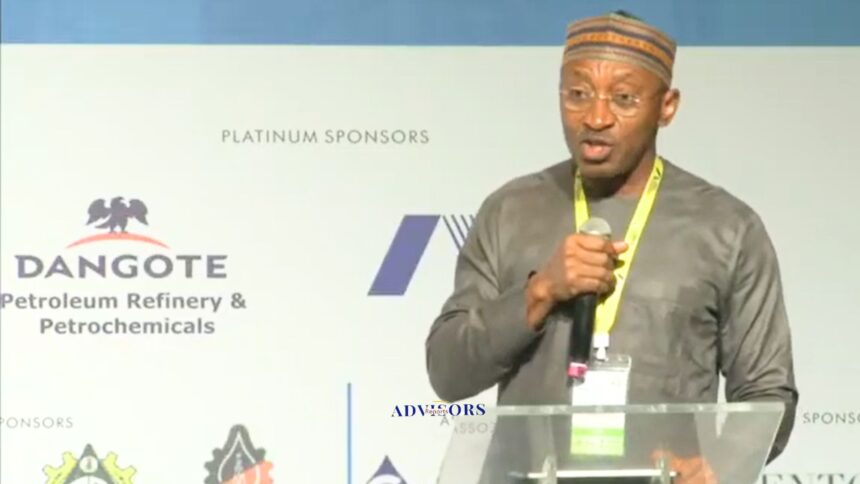… Nigeria can meet domestic, regional fuel demand as refineries come onstream
Oredola Adeola
Mr. Momoh Oyarekhua, Chairman of the Crude Oil Refinery Owners Association of Nigeria (CORAN), has revealed that true national security begins with energy security, emphasising that no nation can claim to be secure or sovereign without the ability to fuel its homes, industries, and daily activities.
He stressed that refining Africa’s resources locally and ensuring a steady crude feedstock supply are vital to strengthening the continent’s economies, societies, and independence.
The Chairman, Crude Oil Refinery Owners Association of Nigeria (CORAN), made this known in his opening speech at the 2nd Nigeria Refining Summit on Tuesday.
Speaking on the theme – “Refining: Key to Energy Security in Africa” – is both urgent and inspiring.
He said, “Energy security is more than the ability to turn on a light or fuel a car. It is about steadfastness, sustainability, stability, and the right of every African to live and have access to energy when and how they want it.
“Africa produces more than seven million barrels of crude oil every single day. Yet, we still import a painful share of the petrol, diesel, aviation fuel, and petrochemical feedstock that drive our economies.
“Each imported litre means scarce foreign exchange leaving our shores.
“Each imported litre represents jobs that could have been created for our youth, technologies we could have mastered, and industrial capacity we could have built,” he said.
The CORAN Chairman further noted that embedded within that paradox lies a rare opportunity.
He said, “Imagine a continent where crude oil from the Niger Delta, the Gulf of Guinea, and the Rift Valley is refined right here – creating skilled jobs from engineering to logistics, stabilizing fuel prices, and ensuring a stable supply even when global markets are in turmoil.
“Imagine the knock-on effect: cheaper power for factories, competitive transport for farmers, and stronger currencies for our nations.
“This is the Africa we can build. And Nigeria, with its population, entrepreneurial spirit, and resource base, must lead the way.
“Refining capacity is central to Africa’s long-term energy security.
“Despite being a major crude oil producer, the continent’s reliance on imported fuels exposes our economies to price volatility, supply disruptions, and foreign exchange pressures.
“By refining more at home, we can ensure a consistent supply, reduce our dependency on imports, and retain significant economic value locally.
“Expanding refining at home also stimulates industrialisation, job creation and regional trade under the African Continental Free Trade Area (AfCFTA),” he said.
Oyarekhua further stated that AfCFTA offers a unique chance to develop a truly integrated African refining and energy market.
He said, “By reducing trade barriers, harmonizing standards, and promoting cross-border investment, we can establish a regional value chain that benefits all parties involved. Nigeria, with its refining capacity, can supply markets in African countries.
“This cooperation will reduce reliance on overseas imports, stabilize supply chains, and strengthen intra-African trade.
“CORAN envisions partnerships where infrastructure, financing and expertise are shared, making Africa self-reliant,” he said.
The CORAN Chairman said, “From the impressive private modular refineries emerging across the Niger Delta to the coming onstream of large-scale facilities such as the Dangote Refinery, momentum is building.
“Government reforms are gradually improving the investment climate, and domestic capital is beginning to meet international expertise.
“Yet, we must be honest with ourselves: we are not moving fast enough.
“Nigeria is uniquely positioned to become Africa’s refining hub, given its vast crude oil reserves, growing private investment in refineries and strategic geographic location.
“With both modular and large-scale refineries coming onstream, Nigeria can not only meet domestic demand but also serve regional markets under the AfCFTA.
“To achieve this, we must ensure consistent policy support, reliable crude supply, and competitive operating conditions.”
He identified key challenges in the sector to include access to affordable financing for refinery projects, regulatory clarity and consistency to build investor confidence, and infrastructure bottlenecks ranging from power to pipelines.
He said, “The need for all stakeholders to see tangible benefits, so that refining becomes a shared victory, not a source of conflict and resistance.
“And most critically, the reliable supply of crude feedstock to our domestic refineries.
“Because without a guaranteed flow of crude, even the best-designed refineries will sit idle.
“Energy security begins not just at the refinery gate, but at the wellhead.
“If we secure the feedstock, we secure the fuel, the jobs, and the prosperity that follow.
“Increased refining capacity extends far beyond energy security – it catalyzes economic transformation.
“Every refinery project generates numerous direct and indirect jobs, encompassing construction, operations, and supply chains.
“It drives demand for skilled labour, encouraging training, research, and capacity development in engineering, technology and management.
“Beyond jobs, refining stimulates local industries by providing feedstock for petrochemicals, fertilizers, plastics and other value-added products,” he said.
The CORAN Chairman said, “Nigerian engineers are mastering complex refinery processes that were once thought to be out of reach.
“Local fabricators are producing equipment to international standards.
“Young graduates – our sons and daughters – are proving that African talent is of world-class standard.
“These achievements demonstrate that with the right environment, we can refine not only our oil but also our skills, confidence, and global standing,” he said.
Oyarekhua therefore urged stakeholders at the summit to collectively commit to investing in Nigeria’s refining sector, foster partnerships between the public and private sectors, and ensure transparent, predictable regulation.
He also called for joint efforts to guarantee that every domestic refinery receives adequate crude supply, ensuring that the benefits of refining – jobs, trade, logistics, infrastructure, technology, and human capital development – reach every part of society.




